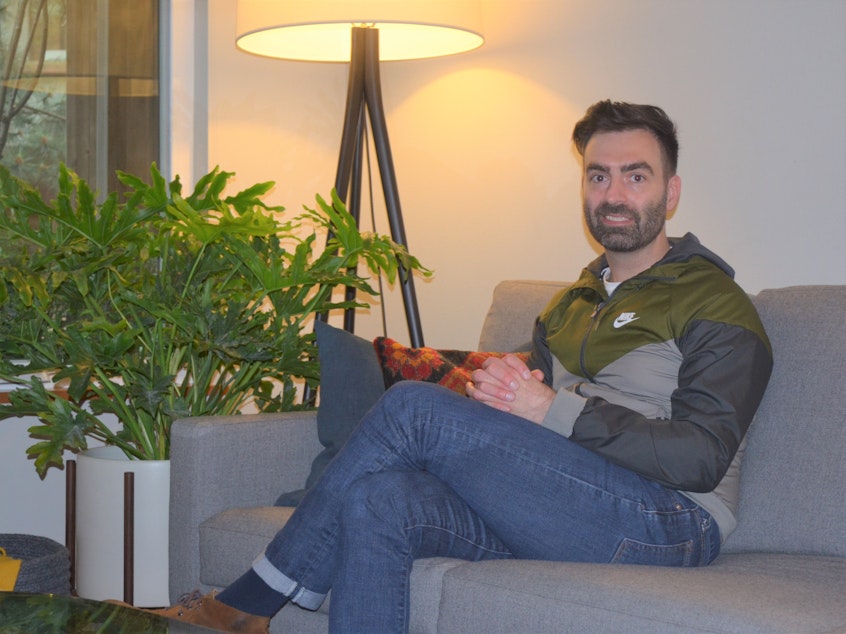The surprising ways people with OCD responded to coronavirus: 'I've been training for this my whole life'

When the pandemic started taking off in the Seattle area, Chance Kennedy, who has obsessive compulsive disorder, thought to himself, “I’ve been wondering when something like this would finally happen.”
That’s because Kennedy has spent much of his life worrying about silent, unseen threats.
As the pandemic stretches on, everyone is tired of staying at home and anxious about catching the virus. But for those with obsessive-compulsive disorder, the novel coronavirus brings extra challenges.
The pandemic demands a certain level of compulsive attention to ward off a silent, unseen threat, and for folks with OCD, that can mean exacerbating existing conditions — or, on the flip side, a feeling that what they’ve been doing forever is now universal, and that their years of coping with unseen threats prepared them for the current moment.
For Kennedy, part of the problem was that being home meant being exposed to his triggers all the time.
People with obsessive-compulsive disorder have unwanted, recurring thoughts that pop into their brain that are upsetting or disturbing to them.
Kennedy’s unwanted thoughts often have to do with his wife and 1-year-old son getting hurt. Not only does the pandemic make that fear very tangible; working from home, he’s around his wife and son constantly.
“And so, now, two of my biggest triggers — I’m around them 24 hours a day,” Kennedy said. “There were a good probably three weeks where I couldn’t shut my brain off as far as making sure they were taken care of, and I couldn’t calm that. I couldn’t fight it.”
Sponsored
When people with OCD experience unwanted thoughts, they often respond by developing rituals or repeated behaviors to soothe themselves.
Those are things like repeatedly checking that the lights are off or the stove is off, not using certain color pens or avoiding certain numbers, having rules about what order to eat things in, constant washing or disinfecting--the list goes on and varies widely from person to person.
But what people with OCD have in common is that these rituals take up a lot of time and interrupt their lives.
With the pandemic, Kennedy has developed a new ritual to soothe himself when he worries about his family: He checks on his lawn.
“You should be able to go out and check it one time a day--it’s good,” Kennedy said. “Nope. I have to go out and I check it 3, 4, 5, 6 times a day, even though I’ve already checked it today. Well, what about that spot over there? Should I check that? I need to check that.”
Sponsored
“As soon as it became a reality that Covid was going to be a significant issue, it definitely made me feel really sad and concerned for some of my clients with OCD,” said Dr. Travis Osborne, who’s been treating people with OCD for more than a decade, “because I just knew that, for some of them, this is going to create more work.”
One thing he’s worried about is that the people he works with could take the new rules around hand-washing and social distancing to the extreme, he said. They could set a timer every time they wash their hands and start over again if they felt they missed a step, or they could avoid, say, grocery stores entirely because it’s impossible to always maintain six feet of distance there, or they could have trouble dropping these new habits once the pandemic is over.
“We’re really trying to help people limit the amount of new ritualizing they’re developing because of this,” Osborne said, “so that, at the end of this, they don’t have a whole bunch more symptoms to tackle that they didn’t have before.”
But, Osborne added, something else happened that he didn’t expect at all.
Like Chance Kennedy, some of the people Osborne works with see the pandemic as confirmation that unseen threats can be real. And some of them say, because of their OCD, they feel equipped to cope.
Sponsored
Osborne said some of his clients have told him, “I feel like I’ve been training for this my whole life. Like, I feel like I have been dealing with anxiety and learning how to cope with it and learning how to manage these really difficult thoughts about worry and bad things happening, and I feel like, in a way, I’m actually doing better managing this than people around me who don’t have OCD.”
That’s the experience Justin Keyes has had. Keyes has been suffering from OCD for more than a decade and had been making a lot of progress in therapy before the pandemic.
Before Covid, Keyes had washed his hands constantly as a soothing behavior, and, at one point, he had to get rid of all the soap in his apartment to break the habit.
During the pandemic, Keyes has been struggling to keep to only washing his hands when strictly necessary.
“OCD tells me like, I need to wash my hands and before I know it, that impulsive, compulsive behavior kicks in and my hands are in the sink and I’m washing my hands again,” Keyes explained.
Sponsored
But, at the same time, he does feel prepared for this moment.
In therapy, he said, “You’re sitting, you’re acknowledging the uncomfortable feelings that you’re feeling. You’re letting them be and letting your body like naturally calm down from that anxiety rather than responding to it with a compulsive behavior.”
So, he concluded, “having some experience doing that has allowed me to look at it sort of in like a Zen way”--look at the pandemic in a Zen way, that is—“And recognize that, okay, this is the thing that’s happening. I can acknowledge that it’s uncomfortable; I can live with that discomfort. And it’s gonna be okay.”




